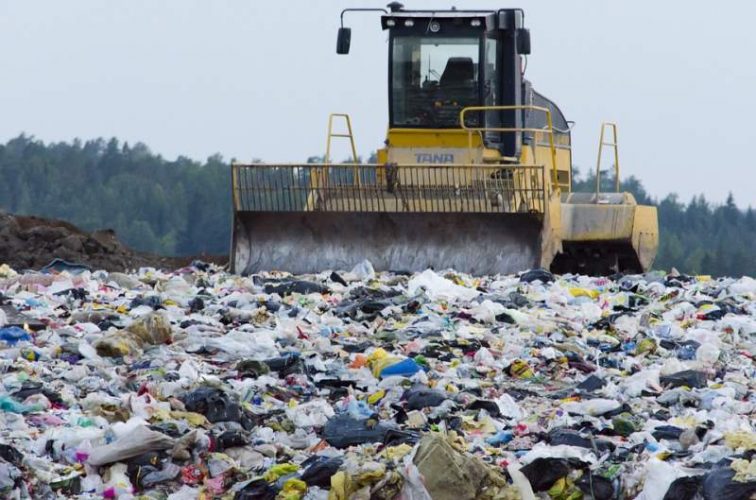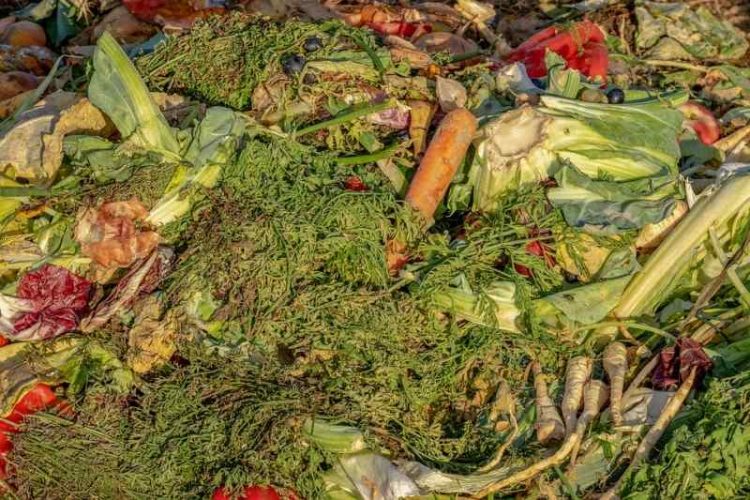Food waste refers to the amount of food that is thrown away or lost between production and consumption. The waste of food is a major ethical problem because nearly 1 billion people worldwide do not have enough food to eat. Additionally, it causes environmental pollution and destruction through the use of fertilizers and crop protection. Resources are wasted because energy, water, and land are unnecessarily used for the production and transport of “uneaten” food.
What is Food Waste
Food waste and food loss are all foods that are produced but for various reasons is not eaten. It is a huge problem and a waste of resources, especially in “developed” or industrialized countries. The causes of food waste or loss are numerous and occur at the stages of producing, processing, retailing and consuming.
What Percentage Of Food Is Wasted
A conservative estimation is that about one-third of all food grown or produced on the planet ends up in the dump. That is 1.3 billion tons of food a year and corresponds to CO2 emissions of more than three gigatons.
Food waste explained
The World Food Organization (FAO) distinguishes two areas of food waste:
- food loss
- food waste
The FAO describes Food Loss as the proportion that is lost or spoiled before the product reaches the retail market. A variety of causes can lead to such losses during harvesting, storage, packaging or transport. A considerable part of agricultural harvest remains on the fields because it is not or only difficult to sell because of looks and odd shapes.
Food Waste is what ends up in the bin. This can be food that is gone off and cannot be sold anymore, or food that we have cooked and not eaten, burgers that are not sold after 15 minutes, the list is endless…
In retail stores, large quantities of produce and fruit are thrown out simply because it doesn’t look good anymore, or because the best-before date will soon be reached.
Waste also differs depending on whether it is avoidable. For example, it is unavoidable when the non-edible components of food are removed while preparing food. These include, for example, orange peels or bones. Food waste that arises due to habits can be partially avoided. Many people eat apples with the skin, others like to peel them. Waste is considered to be avoidable if the food is still edible at the time of disposal or if it would have been edible if consumed in time.

How much food is wasted worldwide?
Depending on the sources, there are different data about the extent of food waste. This is partly due to different estimates and projections because in some areas there is a lack of reliable data. This applies in particular to the extent of agricultural waste.
According to a study by the World Food Organization of the UN (FAO), around 1.3 billion tons of food is thrown away worldwide every year. Disposal is taken into account along the entire value chain – from cultivation to production and sales to consumers. This corresponds to 1/3 of the food produced worldwide and is divided equally between industrialized and developing countries.
How To Stop Food Waste
Just as food waste is generated in different areas, there are different approaches to reducing waste. There are political initiatives, private actors and companies that are committed to using resources more efficiently and achieving sustainable development in the interests of the United Nations.
Some countries have passed a law that prohibits grocery stores from throwing away unsold food. Instead, they should be donated, used as animal feed or composted, for example.
Another approach is selling fruits and vegetables that are not flawless on the outside for a reduced price instead of throwing them away. More and more large and small retailers are practising this.
There are also many more ideas for avoiding food waste. For example, the “Foodsharing” initiative invites you to share food or give it away to others. Grocery retailers work with NGO’s which provide the needy with food.
FoodRescue.US reduces food waste in the United States.
What can You Do to Stop Food Waste
There are many everyday tips that can help reduce food waste. This includes:
- Use a shopping list – The shopping list helps to only buy what is really necessary.
- Check your pantry before shopping – There may be more in your fridge and pantry than you remember.
- Don’t shop when hungry – If you go shopping hungry, you buy too much. Try to go shopping with a full stomach.
- Avoid bulk packs – Only buy bulk packs if there are a lot of eaters, otherwise, the food may get too old.
- Take a cooler bag for shopping – This way, the cold chain is not interrupted and the food lasts longer.
- Quality before quantity – Buying quality from a farmers market, and fresh produce near you to reduce transport routes.
- Shop free of packaging – Shopping without packaging waste is possible, goingzerowaste.com
- Pre-cooking saves time and money – Whether soups, casseroles, or stews, store food for a quick meal later.
- Store correctly – Proper storage keeps food fresh and edible for longer. Fridges and freezers let you store food longer. Choosing the right storage container and freezing temperature is crucial.
- Best before – The best before date is a guideline that indicates until when food that is unopened will be still edible. In reality, food can last longer, thoroughly check the food before consumption.
- Store safely in the pantry – Long-lasting foods such as cereals, spices or preserves can be stored in the pantry at room temperature.
- Consume before the food goes off – Yesterday’s bread or yoghurt that expires in three days is offered at a discount in supermarkets. Buy cheap and consume quickly, but many things last far longer than the best before date.
- Cooking with measure – Plan properly how much to cook so there are no leftovers.
- Leftovers are too valuable to be thrown away – If stored well, they can usually be kept for a few days and only need to be warmed up before eating.

Summary
In Europe and North America, around 500 pounds of food is wasted per person per year. Amazingly, of the most industrialized countries in the world, Greece and China produce the least food waste per capita. Through your purchasing power as a consumer and your behaviour, you can contribute greatly to cut food waste and therefore significantly reduce CO2 emissions.
Consumers even pay twice for this waste by also using energy for its disposal. Food waste that cannot be avoided should, therefore, be recycled as sensibly as possible – for example as compost, animal feed or for energy generation in biogas plants.
While the industrialized world throws away unimaginable amounts of food, millions of people go hungry worldwide. In view of the unequal distribution, we are ethically obliged to handle our food carefully. Our food waste contributes to the destruction of natural resources and the disappearance of the entire ecosystem.
Further Reading:
How what you eat impacts the climate
